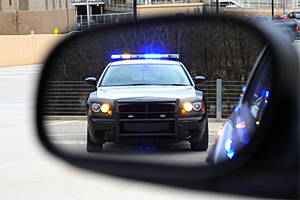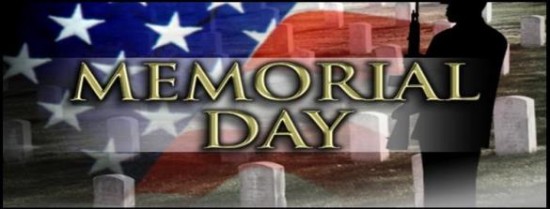Expunction of Record – Get a Second Chance
Friday, November 14th, 2014 Generally, the fact that one was charged with a crime remains on their record regardless of the disposition of the charge, unless the charge gets expunged. An expungement in North Carolina is the eradication of one’s criminal record by court order. The effects of an expunction or expungement are outlined in N.C.G.S. § 15A-153 and include that upon expunction one may truthfully and without committing perjury or false statement deny or refuse to acknowledge that the criminal incident occurred.
Generally, the fact that one was charged with a crime remains on their record regardless of the disposition of the charge, unless the charge gets expunged. An expungement in North Carolina is the eradication of one’s criminal record by court order. The effects of an expunction or expungement are outlined in N.C.G.S. § 15A-153 and include that upon expunction one may truthfully and without committing perjury or false statement deny or refuse to acknowledge that the criminal incident occurred.
Thanks to Hour Bill 1023 which went into effect on December 1, 2012, one can now even get a conviction expunged pursuant to N.C.G.S. § 15A-145.5 as long as the offense was a nonviolent felony or misdemeanor:
(a) For purposes of this section, the term “nonviolent misdemeanor” or “nonviolent felony” means any misdemeanor or felony except the following:
(1) A Class A through G felony or a Class A1 misdemeanor.
(2) An offense that includes assault as an essential element of the offense.
(3) An offense requiring registration pursuant to Article 27A of Chapter 14 of the General Statutes, whether or not the person is currently required to register.
(4) Any of the following sex-related or stalking offenses: G.S. 14-27.7A(b), 14-190.7, 14-190.8, 14-190.9, 14-202, 14-208.11A, 14-208.18, 14-277.3, 14-277.3A, 14-321.1.
(5) Any felony offense in Chapter 90 of the General Statutes where the offense involves methamphetamines, heroin, or possession with intent to sell or deliver or sell and deliver cocaine.
(6) An offense under G.S. 14-12.12(b), 14-12.13, or 14-12.14, or any offense for which punishment was determined pursuant to G.S. 14-3(c).
(7) An offense under G.S. 14-401.16.
(8) Any felony offense in which a commercial motor vehicle was used in the commission of the offense.
In order to qualify for an expunction under N.C.G.S. § 15A-145.5 one may not have other felony or misdemeanor convictions in any state and no previous expunction under this section or under any of the following sections: N.C.G.S. §§ 15A-145, 15A-145.1, 15A-145.2, 15A-145.3, or 15A-145.4. Further, a petition for expunction of record under this section shall not be filed earlier than 15 years after the date of the conviction or when any active sentence, period of probation, and post-release supervision has been served, whichever occurs later. The costs for filing petition under N.C.G.S. § 15A-145.5 is $175.
If you feel you may be eligible to pursue an expungement in New Hanover, Pender, or Brunswick Counties, North Carolina, call Collins Law Firm for a consultation at (910) 793-9000.
By Jana Collins, Office Manager

 A traffic ticket can cause a lot of headache. It starts with embarrassment when the blue lights come up in your rear view mirror and when you have to sit on the side of the road while the officer investigates and issues your ticket and it continues far beyond. If you receive a traffic ticket, you should consult with an attorney on how to best handle your ticket.
A traffic ticket can cause a lot of headache. It starts with embarrassment when the blue lights come up in your rear view mirror and when you have to sit on the side of the road while the officer investigates and issues your ticket and it continues far beyond. If you receive a traffic ticket, you should consult with an attorney on how to best handle your ticket. “USA, USA, USA” can be chanted now that the United States has advanced onto the Knockout Round in the World Cup 2014, being held in Brazil. Even though this is a positive advancement for the United States, it did not come easily after losing to Germany 1-0 on Thursday, June 26th, 2014. It was thanks to Portugal defeating Ghana 2-1 that allowed the United States to hold on to their second place standing. This in itself is a great accomplishment for the United States, as they were ranked 14th in the World by the Fédération Internationale de Football Association (FIFA) when they entered the World Cup, and we were also placed in the “Group of Death”, facing very difficult teams including Ghana, Portugal, and Germany.
“USA, USA, USA” can be chanted now that the United States has advanced onto the Knockout Round in the World Cup 2014, being held in Brazil. Even though this is a positive advancement for the United States, it did not come easily after losing to Germany 1-0 on Thursday, June 26th, 2014. It was thanks to Portugal defeating Ghana 2-1 that allowed the United States to hold on to their second place standing. This in itself is a great accomplishment for the United States, as they were ranked 14th in the World by the Fédération Internationale de Football Association (FIFA) when they entered the World Cup, and we were also placed in the “Group of Death”, facing very difficult teams including Ghana, Portugal, and Germany. Heroin is a highly physiologically addictive narcotic derivative of morphine but has a higher potency than morphine. C.R. Alder Wright – an English chemistry and physics researcher in London – was the first to synthesize heroin in 1847. Heroin usually appears as a white or brown powder or as a black sticky substance, known as “black tar heroin.” The name Heroin stems from Bayer, the German Pharmaceutical Company. Bayer named the first diamorphine product Heroin and made its first fortunes in the late 1890s when it
Heroin is a highly physiologically addictive narcotic derivative of morphine but has a higher potency than morphine. C.R. Alder Wright – an English chemistry and physics researcher in London – was the first to synthesize heroin in 1847. Heroin usually appears as a white or brown powder or as a black sticky substance, known as “black tar heroin.” The name Heroin stems from Bayer, the German Pharmaceutical Company. Bayer named the first diamorphine product Heroin and made its first fortunes in the late 1890s when it 
 ”Let it snow, let it snow, let it snow” is the chant all the New Hanover County kids are chanting this morning as they await their winter wonderland. In anticipation of inclement weather New Hanover, Pender, Brunswick, Columbus, Bladen, and other surrounding counties have all cancelled school today and will probably do the same for tomorrow. In addition to schools being cancelled, many courts are closed as well.
”Let it snow, let it snow, let it snow” is the chant all the New Hanover County kids are chanting this morning as they await their winter wonderland. In anticipation of inclement weather New Hanover, Pender, Brunswick, Columbus, Bladen, and other surrounding counties have all cancelled school today and will probably do the same for tomorrow. In addition to schools being cancelled, many courts are closed as well. Job security is always an aspect to consider when choosing a job or career path, especially with a sloping economy. Economists are predicting that over the next fifteen years certain jobs in the medical field such as nurses and nursing assistants will become in short supply, which will increase the demand for such jobs. There are many different certifications and licenses you may receive within this targeted medical field such as becoming a registered nurse, a certified nursing assistant, a licensed practical nurse, along with many more. Persons in the health care field have a very emotional job as they work with those who are sick and ill. As they work with those, who many times cannot take care of themselves, sometimes questions and allegations arise as they help others’ loved ones.
Job security is always an aspect to consider when choosing a job or career path, especially with a sloping economy. Economists are predicting that over the next fifteen years certain jobs in the medical field such as nurses and nursing assistants will become in short supply, which will increase the demand for such jobs. There are many different certifications and licenses you may receive within this targeted medical field such as becoming a registered nurse, a certified nursing assistant, a licensed practical nurse, along with many more. Persons in the health care field have a very emotional job as they work with those who are sick and ill. As they work with those, who many times cannot take care of themselves, sometimes questions and allegations arise as they help others’ loved ones.
 This upcoming weekend is Memorial Day Weekend. While Memorial Day is a day to remember and honor those who lost their lives while serving our country in the United States Armed Forces, many take this longer weekend as an opportunity to travel.
This upcoming weekend is Memorial Day Weekend. While Memorial Day is a day to remember and honor those who lost their lives while serving our country in the United States Armed Forces, many take this longer weekend as an opportunity to travel. On July 4, 2012, we will celebrate the 236th anniversary of the Declaration of Independence from the Kingdom of Great Britain. Many Americans consume alcohol during this celebration.
On July 4, 2012, we will celebrate the 236th anniversary of the Declaration of Independence from the Kingdom of Great Britain. Many Americans consume alcohol during this celebration.